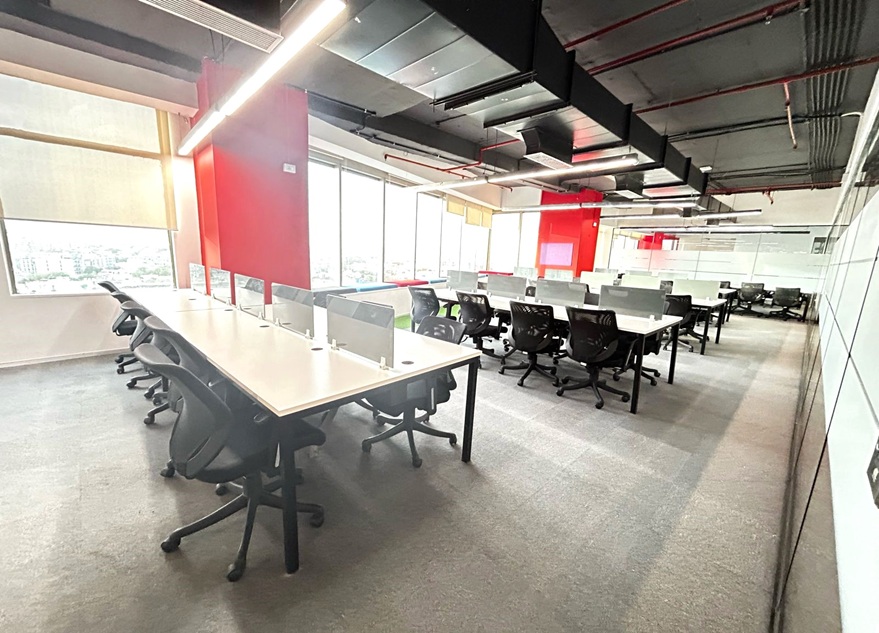Most businesses fear customer complaints, but they shouldn’t. Complaints are a goldmine of insights that can help you improve your products, services, and customer experience. Instead of seeing them as negatives, smart businesses leverage complaints to build stronger relationships and boost brand loyalty. When customers take the time to share their concerns, they’re giving you a chance to fix issues and stand out from the competition. In this blog, we will explore why customer complaints are actually good for your business—and how you can turn them into opportunities for growth.
💡 Are you looking for Coworking space in Gurgaon, Noida or Delhi? We are just a call away.
Call Now: 08999 828282
10 Benefits of Customer Complaints
- They Show You What Needs Improvement
- They Help You Improve Customer Experience
- They Boost Customer Retention
- They Provide Valuable Customer Feedback
- They Give You a Competitive Edge
- They Help Build Stronger Relationships
- They Teach You How to Handle Customer Complaints
- They Help in Creating Better Customer Service Strategies
- They Turn Problems into Opportunities
- They Show That You Care About Your Customers

1. They Show You What Needs Improvement
No business is perfect, and mistakes happen. Customer complaints highlight areas where your products or services may not be meeting expectations. Instead of viewing complaints as negative feedback, see them as an opportunity to fix problems. By addressing these issues, businesses can improve their services and prevent the same problems from affecting other customers. Customer service improvement starts with understanding what’s wrong and taking action.
2. They Help You Improve Customer Experience
A good customer experience management strategy focuses on making every interaction positive. When customers complain, they are giving you a chance to improve their experience. If you listen and take action, you can turn a negative situation into a positive one. Customers appreciate businesses that care about their concerns, which increases their trust and loyalty.
3. They Boost Customer Retention
Unhappy customers often stop doing business with a company without saying why. However, those who complain are giving you a second chance to fix the problem. Studies show that if a business resolves a complaint efficiently, customer retention strategies become more effective, and customers are more likely to remain loyal. A customer who has had their complaint resolved often becomes even more loyal than one who never had an issue.
Also Read: What are the Compliance Requirements for Starting a Business in India?
4. They Provide Valuable Customer Feedback
Customer complaints are a direct form of customer feedback. They tell you what is not working, what customers expect, and how your business can improve. Instead of conducting expensive surveys, simply listening to complaints can provide real insights into customer needs. Businesses that use complaints as a learning tool can stay ahead of competitors by continuously improving their offerings.
5. They Give You a Competitive Edge
Companies that actively address complaints gain a significant advantage over those that ignore them. Business growth strategies should include learning from complaints and using them to create better services and products. By fixing issues before they become widespread, businesses can attract new customers while keeping existing ones happy. This approach helps businesses stand out in a competitive market.
6. They Help Build Stronger Relationships
Customer relationships are built on trust. If a customer sees that their complaint is taken seriously and resolved quickly, they will feel valued. This plays a crucial role in customer engagement strategies. Businesses that engage with customers during difficult situations and provide satisfactory solutions strengthen relationships, leading to long-term loyalty.
7. They Teach You How to Handle Customer Complaints
Handling complaints well is a skill that every business must develop. If complaints are ignored or handled poorly, customers will take their business elsewhere. Learning how to handle customer complaints involves training employees to be patient, understanding, and solution-focused. Businesses that handle complaints professionally and efficiently will leave a lasting positive impression.
8. They Help in Creating Better Customer Service Strategies
Complaints reveal patterns in customer dissatisfaction, which can help businesses refine their customer service strategies. If multiple customers complain about the same issue, it signals a need for process improvements. By analyzing complaints, businesses can create better policies, improve response times, and train employees to handle customer interactions more effectively.
💡 Are you looking for Coworking space in Gurgaon, Noida or Delhi? We are just a call away.
Call Now: 08999 828282
9. They Turn Problems into Opportunities
Many successful businesses use complaints to innovate and improve. Turning complaints into opportunities means finding ways to address issues and enhance products or services. For example, if a customer complains about slow service, the business can introduce faster delivery options. Instead of seeing complaints as setbacks, businesses should view them as stepping stones to improvement.
10. They Show That You Care About Your Customers
One of the biggest benefits of customer complaints is that they allow businesses to demonstrate their commitment to customer satisfaction. When a company actively listens, responds, and resolves issues, customers feel valued. This enhances the brand’s reputation and increases customer loyalty. A company that genuinely cares about its customers will always have a stronger, more positive image in the market.
Embracing customer complaints can transform your business by improving services, building trust, and increasing customer loyalty. Instead of avoiding feedback, use it to your advantage and turn dissatisfied customers into loyal advocates. At The Office Pass (TOP), we understand the importance of listening to our clients and continuously enhancing our coworking spaces to meet their needs. If you’re looking for a flexible, hassle-free workspace designed around your feedback, get in touch with TOP today! Visit our website or contact us at 08999 828282 to learn more.
FREQUENTLY ASKED QUESTIONS (FAQS):
Question: Why are customer complaints important for a business?
Answer: Customer complaints help businesses understand what is wrong with their products or services. They provide valuable customer feedback that allows businesses to improve and grow.
Question: How can customer complaints help improve customer service?
Answer: When businesses listen to complaints, they can identify problems and fix them. This leads to customer service improvement, making customers happier and more satisfied.
Question: Can handling complaints increase customer loyalty?
Answer: Yes! If a business responds well to complaints, customers feel valued and are more likely to stay. This is why customer retention strategies focus on resolving issues quickly and effectively.
Question: How do complaints help in customer experience management?
Answer: A good customer experience management strategy involves listening to customers and improving services based on their concerns. Complaints give direct insights into what needs to be fixed for a better experience.
Question: What are the benefits of customer complaints?
Answer: The benefits of customer complaints include better products, stronger customer relationships, and increased trust. Complaints also help businesses stand out by continuously improving their services.
Question: How do businesses turn complaints into opportunities?
Answer: Turning complaints into opportunities means using feedback to make improvements. If customers complain about slow service, for example, businesses can introduce faster options, making their service better than before.
Question: What are the best ways to handle customer complaints?
Answer: The key to handling customer complaints is to listen carefully, stay calm, apologize if needed, and offer a quick solution. A well-handled complaint can turn an unhappy customer into a loyal one.
Question: How do complaints contribute to business growth?
Answer: Complaints highlight areas that need improvement. Fixing these issues helps businesses grow by attracting more customers and improving their reputation, making it a key part of business growth strategies.
Question: What customer service strategies can help reduce complaints?
Answer: Effective customer service strategies include clear communication, proper staff training, and quick problem-solving. The better the service, the fewer complaints a business will receive.
Question: How do complaints improve customer engagement?
Answer: When businesses respond to complaints with care, customers feel heard and respected. This builds trust and improves customer engagement strategies, making customers more likely to stay loyal and recommend the business to others.




 The Office Pass (TOP)
The Office Pass (TOP) 



